|
Acupuncture and Chinese medicine seek to address the root cause of insomnia and sleep disorders. Some of the symptoms of sleep disorders are:
COMMON REASONS FOR HAVING TROUBLE SLEEPING
HOW ACUPUNCTURE & CHINESE MEDICINE CAN HELPMany patients are looking for non-drug alternatives to treating insomnia and sleep disorders since sleep drugs often come with their own side effects. Acupuncture and Chinese herbs provide a natural way to treat sleep issues, and can have more lasting effects than other alternatives. Some of the benefits include:
A meta-analysis that looked at the effectiveness of acupuncture for insomnia found that acupuncture was significantly better at improving various sleep parameters related to sleep quality and duration when compared with no treatment, sham acupuncture (acupuncture done on non-acupuncture points), or medications. Additionally, the combination of acupuncture and other treatment modalities appeared more effective than those other treatments alone. (Source: Acupuncture for Treatment of Insomnia: A Systematic Review of Randomized Controlled Trials https://www.ncbi.nlm.nih.gov/pmc/articles/PMC3156618/) Acupuncture helps balance the nervous system (see my prior blog post) and activate various neurotransmitters in the brain. It has also been found to help increase specific hormones that promote sleep (https://www.ncbi.nlm.nih.gov/pubmed/14990755). Chinese herbs are often used along with acupuncture for insomnia and sleep issues. There are several commonly used herbal formulas that address different symptoms and root causes of insomnia. A study that reviewed the use of Chinese herbal medicine for insomnia to determine their pharmacological actions concluded that some herbs have sedative qualities that act on various neurotransmitters such as gamma-aminobutyric acid (GABA) and serotonin receptors (5-HT1A) which affect sleep quality. Source: Treatment of Insomnia With Traditional Chinese Herbal Medicine https://www.ncbi.nlm.nih.gov/pubmed/28807167 Contact Us For More InformationIt is important to consult with a licensed acupuncturist and board certified herbalist to ensure that they have the proper acupuncture training and are prescribing the right formula for your condition. Acupuncture treatments and herbal formulas are not a one size fits all solution and are customized for more complex sleep conditions.
Please feel free to contact me if you have any questions or to set up a free phone consultation.
2 Comments
We practice fire cupping, which means we use a flame to burn the air out of the inside of the cup and then quickly place the glass cup onto the skin. The suction will hold the cups firmly in place and feels great. Sometimes the cups are left in place, sometimes they are slid up and down the back, sometimes they are popped on and off, depending on what your practitioner thinks is the best approach for you.
Cupping is like an inverted massage. Instead of pressure being applied into the surface of the muscles, the cups create a suction, and pull the blood to the surface of the skin. Think of your muscles like a sponge. When you have some pain or injury, nothing is moving and your muscles are stiff and stuck, like stale water in the sponge. The cups move the blood up to the surface so that new, fresh blood can come in with oxygen and immune cells to do the necessary repair work. The marks that are left behind aren’t exactly “bruises”, because the process isn’t damaging any of your cells, it is just moving blood and fluids around. What is interesting is that as an area starts to heal, and the stagnant blood gets cleared out, the marks that are left behind become less and less purple, and last for a shorter time. So if you have an old shoulder injury, or a muscle in your back that is always twinging, you can come in and gets some acupuncture and some cupping. Or if you feel some apprehension about those tiny acupuncture needles, we can just cup you. For some people, if they have a lot of stagnation their cupping marks will be rather dark and will sometimes take 2 weeks to go away. These same people will also feel an enormous amount of relief after that first treatment. Every treatment after that, the marks will be less pronounced as there will be less and less stagnation to clear. While cupping is safe and feels good, we do not recommend cupping for people who have bleeding disorders, are on blood thinning medications, or have anemia, any type of skin infection, or thin/fragile skin. By Dr. Jennifer Bezjek, M.S., DAOM Are you going through menopause or know someone who is? If so check out this study.
https://www.sciencedaily.com/releases/2016/09/160928141719.htm In a nutshell, this study found 96% of the participants who received acupuncture experienced a decrease in hot flashes. What are hot flashes? Hot flashes feel like a sudden rush of heat most commonly over the face, neck, and chest. They can cause sweating and leave you feeling cold after they've passed. Hot flashes can come anytime during the day but many women experience them during the night as well. Some women experience them once a week while others may experience them every hour. The good news is that acupuncture and herbs can treat more than just the hot flashes. As acupuncturists we treat the whole body, not just the symptom. This means we strive to bring your body into homeostasis so that you feel good all around. Along with treating the hot flashes we can help improve the quality and quantity of your sleep, regulate your response to stress, improve your digestion and overall sense of well being. Dawna Ara, L.Ac. Or “Stress Happens, but Being Stressed Out Doesn’t Have to–We Can Thrive!”
Ever feel burned out at work or the need for greater focus and get into a habit of a reaching for a pick me up at a particular time each day? Have you ever not had that soda/tea/coffee/pastry/sugar only to feel drained, lethargic or sleepy? Or, at the end of the day, you are left exhausted but unable to sleep–wired but tired, jittery and restless. There is another way to boost your focus, combat fatigue and avoid the roller coaster highs and lows from sugar or caffeine—adaptogens. An adaptogen is an herbal substance which increases the ability of the body to adapt to environmental factors/change and protect us from the harmful effects of stress. Adaptogens are not actually stimulants and don’t have the associated crash that stimulants do but can help the body be more efficient in using energy as well as protect the body from the harmful effects of stress. Adaptogens can calm you down and boost your energy at the same time without over stimulation. They can normalize body imbalances, prevent fatigue and free up energy when you need a burst. Or, on the flip side, they can calm nerves down and promote relaxation even under pressure. By supporting adrenal function, they counteract the adverse effects of stress:
Adaptogens work inside the body’s cells to help the mitochondria (where your energy is made) keep working efficiently so you can access more energy, even when pressured. They can even prevent chemical garbage that otherwise builds up in your cells causing free radicals and damage, or cellular aging. So, adaptogens help cells eliminate toxic byproducts of the metabolic process and help the body to burn cleaner. Another way of looking at its function is that adaptogens “immunize” your body to stress. When challenging real life situations come along, your body is more toned or fit to breeze through the stressor, remaining calm, cool and collected.
If you are prone to numerous colds and flus or are frequently under a lot of stress and would like herbal support for your body, call us at (415) 462-4600. We are happy to help! by Julie Ginsburg, L.Ac., MS For further reading: http://www.ncbi.nlm.nih.gov/pmc/articles/PMC3991026/ this paper analyzes years of clinical and pharmacological research and focuses mainly on Rhodiola rosea, Schisandra chinensis and Eleutherococcus senticosusFrank Lipman’s blog:http://www.drfranklipman.com/adaptogens-natures-miracle-anti-stress-and-fatigue-fighters/Michael Castleman’s articlehttp://www.motherearthnews.com/natural-health/adaptogens-zamz08jjzmcc.aspx
But this won’t be quite the full picture of how acupuncture works, because practitioners also believe that our treatments are an exchange of energy, and that our intention during treatments is important. Further, our system of medicine encompasses many things that Western medicine does not fully understand or know how to describe. We believe the body is always striving for homeostasis and what we do with our needles and herbs is helping either remove obstructions or strengthening the body to move toward this state of balance.
But let’s put that to the side for now and focus on one main question. What happens when we insert a needle into an acupuncture point? First, let’s explore just what an acupuncture point is. Acupuncture points are areas on the body where at certain depths we can access neurovascular nodes with a needle. These points, or nodes, usually have a lower electrical conductivity or impedance than surrounding tissue, which means they are more bio-active and their signals can travel unimpeded to areas of the body or brain and help us achieve the physiological effects we are looking for. When a needle is inserted into an acupuncture point, it activates neural pathways. Pulses are then sent along these neural pathways to the spine and then to the opposite side of the brain. For instance, depending on the acupuncture point being activated, it may travel to the pituitary gland which then stimulates endorphins to be released into the bloodstream. Or, a signal may travel to the thalamus, a part of the brain important in modulating normal and neuropathic pain conditions, which will help decrease pain. Where needles are placed in the body, the cardiovascular system is also accessed. More blood flow is stimulated to the site of the needle. With more blood flow, there are more nutrients into the tissues in the area as well as movement of cellular waste byproducts out of the area. Tissues begin to function better, and the body as a whole begins to feel better. As an example, when acupuncture is used to help treat fertility, blood flow to the ovaries is increased and improved. We will then have follicles which grow in a nutrient rich environment, which can increase their quality. And since we can also effect the neural pathways to the brain, we can have an effect on the hypothalamus and pituitary, the main hormone centers in the brain. The result is that with needles we are also able to help balance hormones. For pain issues, acupuncture canbe helpful in many different ways. It brings more blood flow to a site which helps tissues heal more quickly, helps decrease inflammation, and stimulates the release of our body’s internal ‘feel good’ chemicals, endorphins. Some nerves may over-fire or under-fire, causing muscles to feel chronically tight and painful. Acupuncture can help retrain these nerves to function better, either to cease over-firing or to help nerves conduct with less impedance, which helps pain areas to heal and resolve. So, hopefully this gives a little more explanation about not only how acupuncture works, but also what issues acupuncture can treat. Because of acupuncture’s effect on the nervous, cardiovascular, immune and endocrine systems, there are virtually no bounds to the issues it can be helpful with. Additionally, because acupuncture is working on healing what is going on at the root level, it is not always a quick Band-aid style of treatment. It can take time to affect the changes we are looking for, as it is a re-training of the endocrine system or the nervous system or the muscles, etc. But once these changes to how the body functions are made, then there is less need for outside treatments as the body is trained on keeping itself more towards a state of balance. Go acupuncture! by Laurie Terzo, DAOM, L.Ac., FABORM As your baby’s accommodations become increasingly more cramped during the last months of pregnancy, he or she is still able to perform some remarkable tricks. During the third trimester, around week 32 to week 34, your baby will begin to settle head-down. This is the ideal delivery position, the baby’s head is now near the cervix and facing your back. However in about 3 to 4 percent of pregnancies babies are still positioned head up by the time they are full term. When this occurs it is called a breech position. You probably won’t be able to feel whether your baby is breech. But if you are 36 or more weeks pregnant and think you feel the baby’s head pressing high up in your belly or you feel kicking in your lower belly, this is a good time to see your doctor for an exam. At San Francisco Integrative Medicine, helping breech babies turn is one of our favorite parts of the job. We will start treating breech presentation at 34 weeks and at the latest 38 weeks. When using moxibustion and acupuncture during this time, it’s incredibly effective, safe and non-invasive. Studies have shown that the earlier treatments are started for breech babies, the higher the success rate. Breech presentation treated after 38 weeks will often times require an aggressive team approach using acupuncture, moxibustion and possibly medical intervention by your doctor.
Usually around week 34-36, your doctor or midwife will determine your baby’s position by feeling the outside of your abdomen and uterus with their hands. If your baby is breech, their round and firm head will be toward the top of your uterus and the softer and less round bottom will be lower in your uterus. If your practitioner suspects your baby might be breech, they’ll do an ultrasound for confirmation. Acupuncture and Breech Position Acupuncture can help relax uterine muscles and encourage the brain to send signals to the baby to turn. By balancing the meridian systems for both mother and baby during an acupuncture session, stress and tension is reduced and the two bodies can communicate. We recommend acupuncture once to twice weekly for breech presentation starting at 34 to 36 weeks We have used a combination of these techniques to help babies turn, time and time again. They work by removing restrictions in the body, stimulating movement in the baby and creating space in the uterus. These methods give babies every opportunity to move into optimal fetal position, potentially avoiding an otherwise unnecessary C-section or other invasive medical intervention. Want more information on breech babies – give us a call! There is also great information available at www.spinningbabies.com.
It can start with a few extra strands in your hair brush and then before you realize it, thinning patches begin to occur. Many patients describe their hair loss as happening gradually and then suddenly. According to the American Academy of Dermatology, more and more men and women are suffering from hair loss than before. They estimate that at any given time 30 million women and men in the USA are affected by some form of hair loss during their lifetime.
Luckily, Chinese medicine has a long history of treating hair loss in both men and women. According to the principles of TCM, the growth and development of hair depends on proper functioning of qi and blood that is governed by the Kidney and Liver organ-meridian systems. The Liver organ-meridian governs hair health and is supported energetically by its connection with the Kidney, which influences the growth of all body cells, including hair. The Liver blood nourishes the hair follicle and the hair itself is seen as an extension of blood. The most common causes of declining hair condition, such as premature graying and hair loss, are deficient and/or stagnant Liver blood and Kidney qi deficiency. One example of this is postpartum hair loss. Many women experience hair loss in the several months after childbirth. According to Chinese medicine, this can be due to blood loss and/or the taxation of the Kidneys (the Kidney system can be likened to our reserve tank of the body) with childbirth and the postpartum months. Acupuncture can improve the flow of qi and blood in the scalp and can help hair to regrow and Chinese herbs can nourish qi and blood to stop more hair from falling out. From a Western medicine perspective, poor hair condition or hair loss can be attributed to a variety of causes, including hormonal imbalances (such as androgenic alopecia and hypothyroidism), autoimmune disorders, side effects of medication, and/or nutritional deficiencies. At San Francisco Integrative Medicine, we use both acupuncture and herbs together along with nutritional suggestions and lifestyle changes to help our patients who are suffering from hair loss. These combined therapies not only help in preventing further hair loss from occurring but also support future regrowth. Tips for Hair Loss
A Natural and Effective Way to Treat the Physical and Emotional Symptoms Associated with PMS5/15/2015 If you’re like most women on earth, no matter the severity of your symptoms, you probably have a complicated relationship with PMS. After all, what’s to like about premenstrual syndrome (PMS), with its ugly calling cards like mood swings, insomnia, bloating, and food cravings?
All told, the condition of PMS describes a collection of more than 150 physical and emotional symptoms that can strike the week before your period starts, lasting anywhere from a couple days to almost two weeks. Most Common Symptoms Associated with PMS
While there is not one primary cause of PMS, the hormonal fluctuations that occur during the menstrual cycle are considered the most likely contributors. Each month a variety of hormones cascade through the Hypothalamus-Pituitary-Ovarian Axis. These hormones dictate the timing and occurrence of several key events of your menstrual cycle including the growth and shedding of the endometrium and the growth and release of your egg at ovulation. After ovulation, during dramatic a shift in hormone levels, is usually when symptoms of PMS occur. Compounding the hormonal changes going on in your body, such factors as daily stress, lack of exercise, insufficient sleep, and unhealthy eating also play a role. When to Seek Treatment So when is treatment for PMS necessary? Most western medical professionals will dictate that treatment is not necessary for most women dealing with PMS, especially those with low grade symptoms. Regardless of the severity of your symptoms, if your PMS troubles you each month and impacts your quality of life, I would say treatment is always warranted. How Acupuncture and Chinese Medicine Can Help Luckily for women dealing with PMS and other problems associated with their menstrual cycle, gynecology is one of the main clinical specialties in Traditional Chinese Medicine (TCM). On top of looking at your medical and health history, your TCM practitioner will analyze the flow of energy, or qi, and blood in each patient as a means of identifying imbalances that are causing your symptoms. Therefore, treatments will address problems in a holistic manner and will able to reach the root of the problem. Research of Premenstrual Syndrome (PMS) has been shown to be successfully treated using acupuncture and Chinese herbs in numerous double-blind controlled studies. One study published in the Archives of Gynecology and Obstetrics found that 78% of women undergoing acupuncture treatments experienced less PMS symptoms within 24 hours after receiving the treatment. Though there isn’t conclusive evidence for how exactly acupuncture works according to Western medicine, it’s believed that it increases circulation and elevates endorphins levels, which enhance mood, relaxation and alleviate pain. Most people feel relief from pain and other PMS symptoms in the first 24 hours after an acupuncture treatment, so getting acupuncture treatments a day or two before your symptoms start is a great a place to begin. In order to fully address any hormonal irregularities causing your PMS symptoms, a TCM treatment should be continued routinely for at least three months. By Elanita Korian, L.Ac., MS |
Archives
December 2023
Categories
All
|
Proudly powered by Weebly
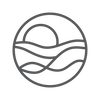
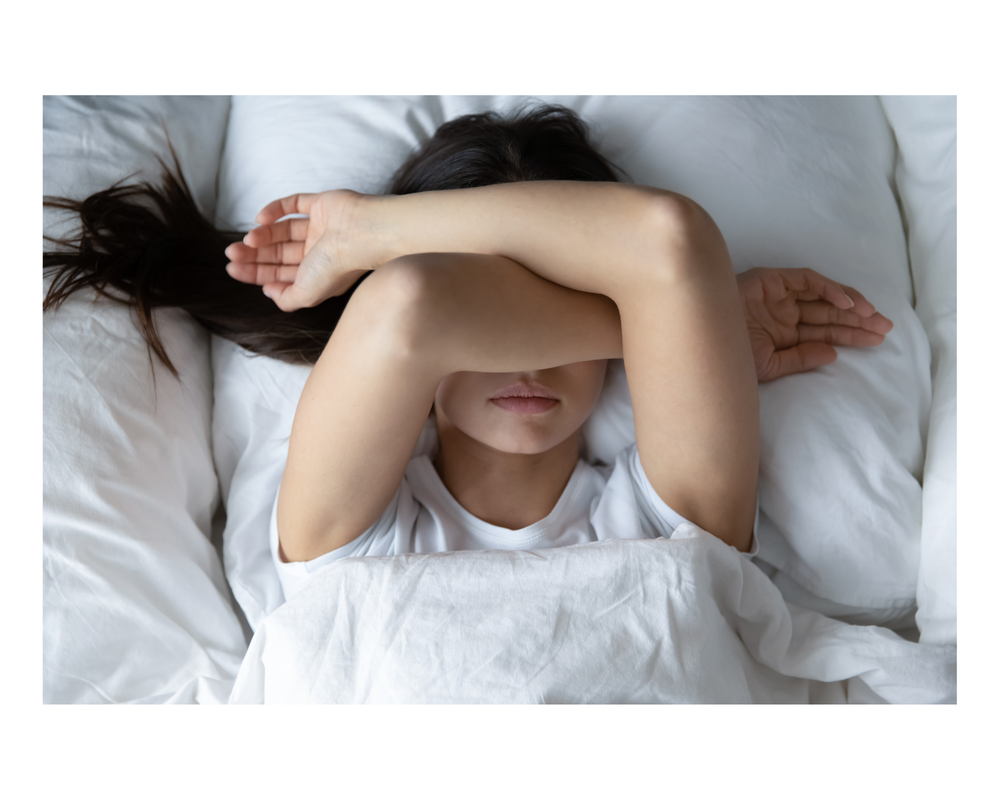
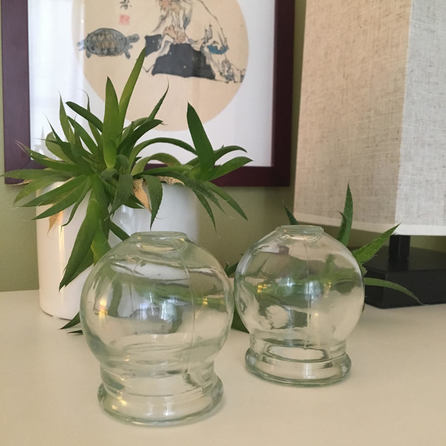

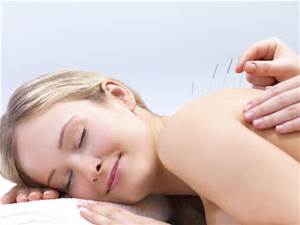
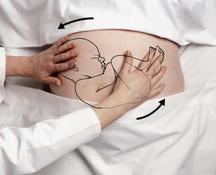
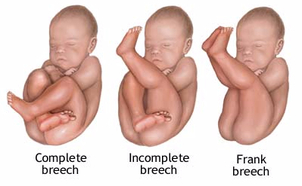
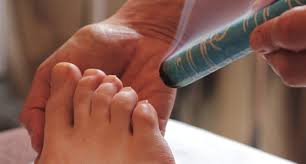
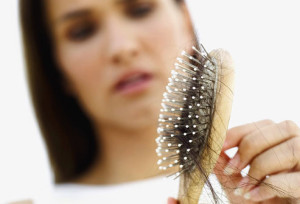
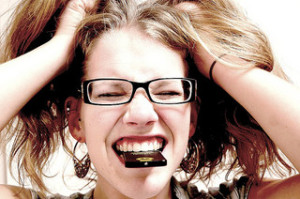
 RSS Feed
RSS Feed